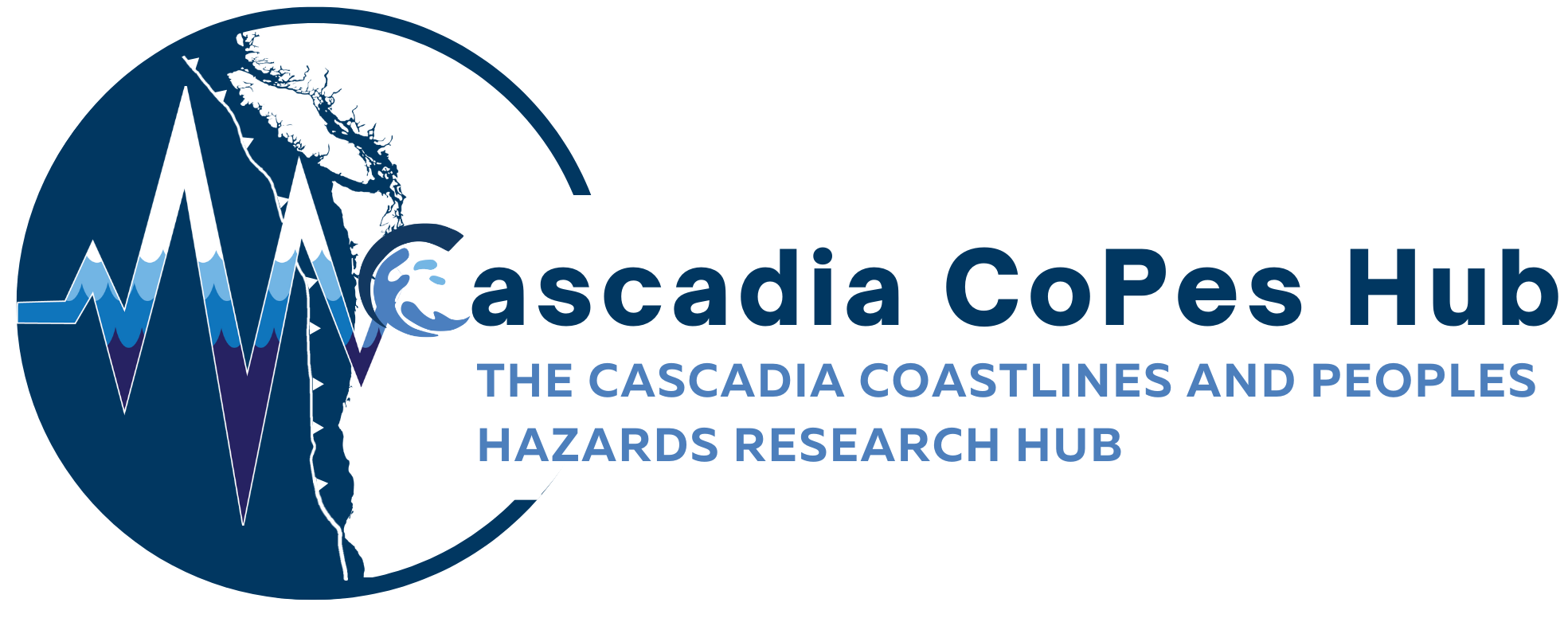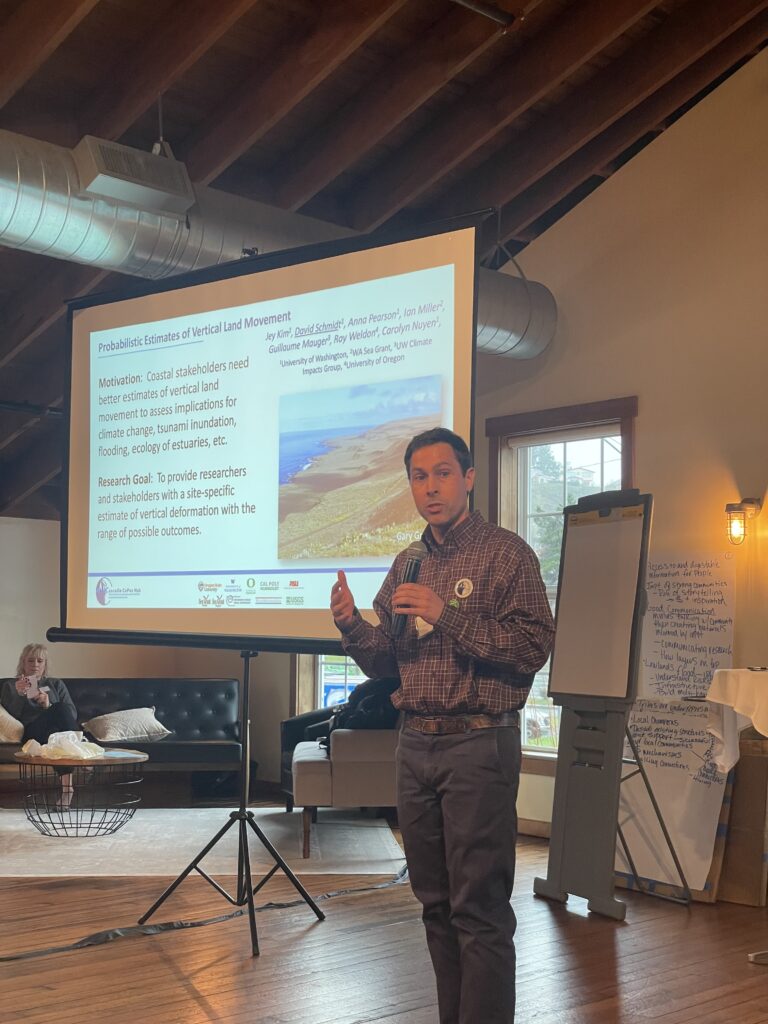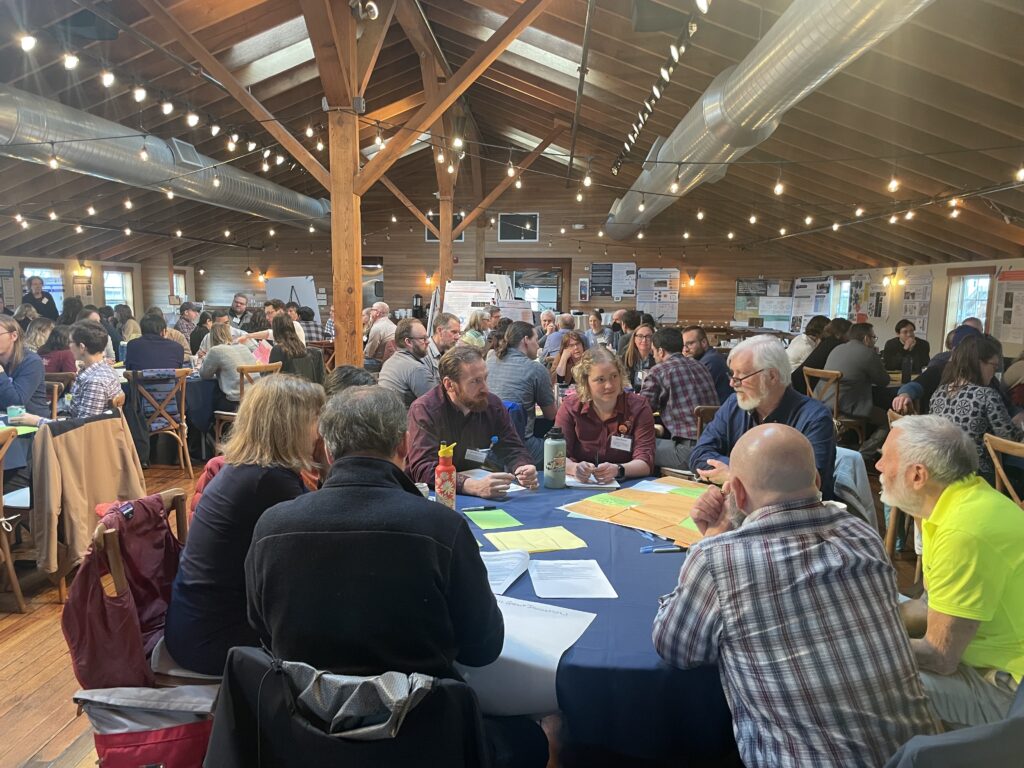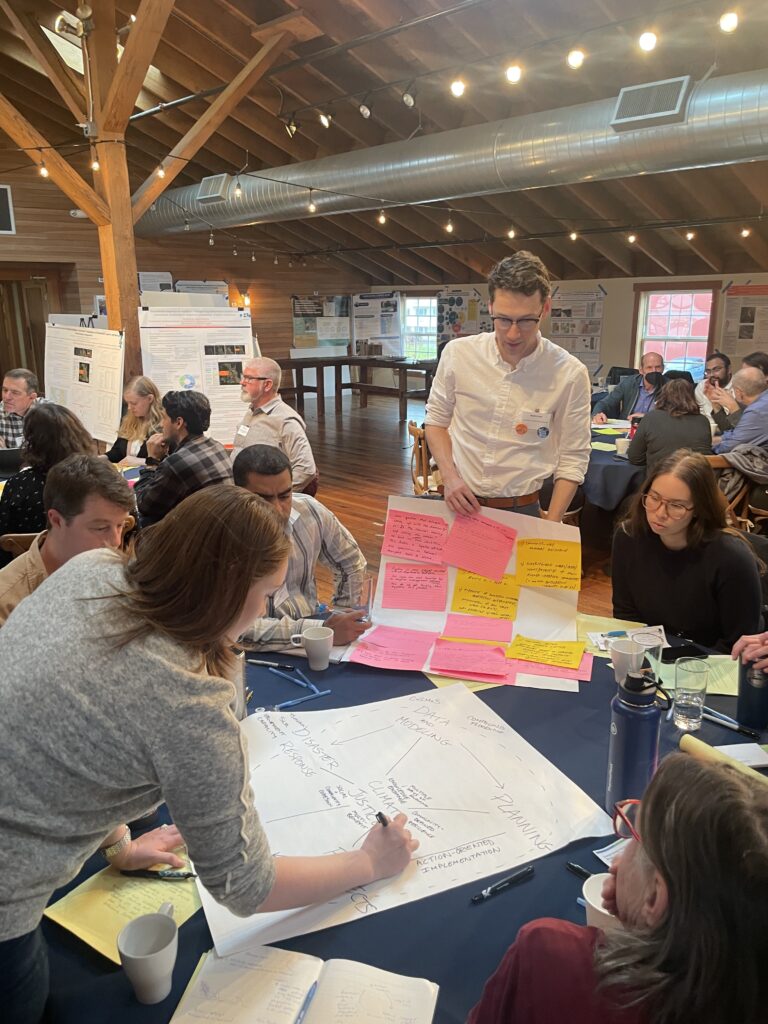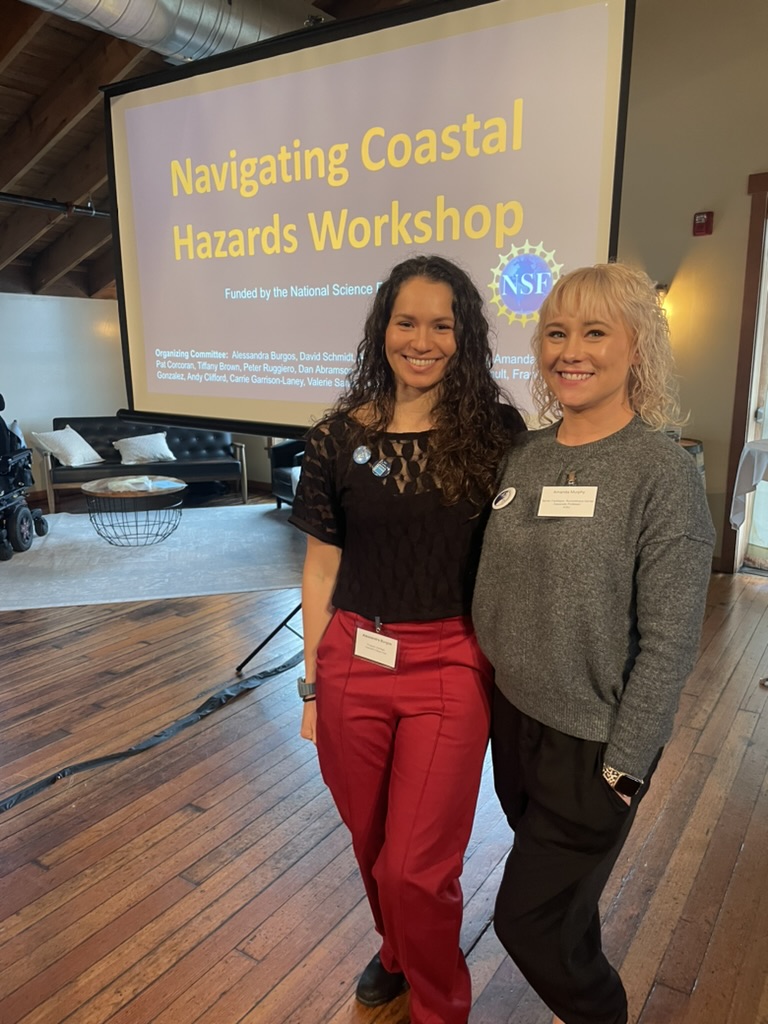Navigating Coastal Hazards Workshops
What are your community’s values, needs, and visions of coastal resilience?
Save the Date for Workshop 2!
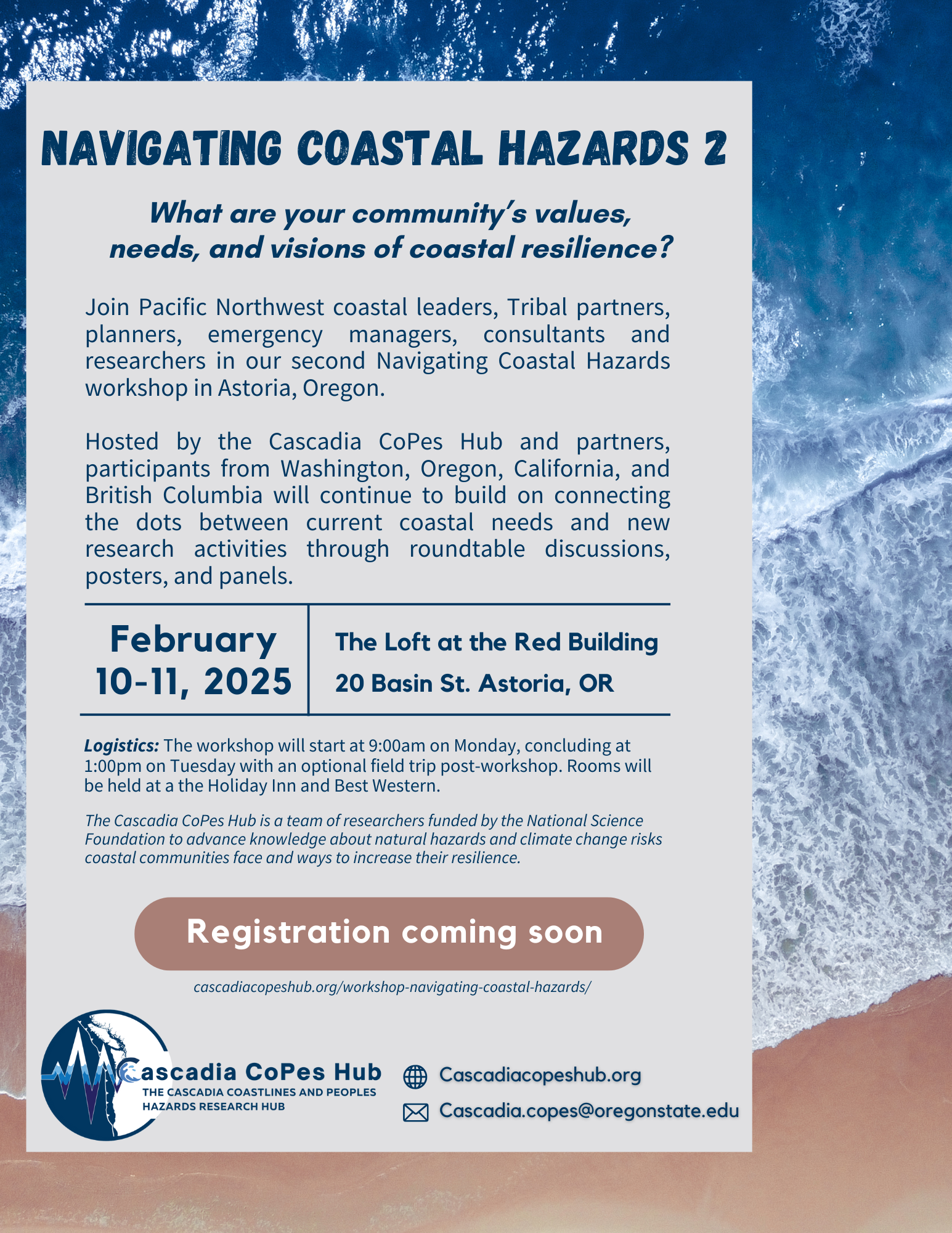
NCH Workshop 1
Coastal planners, leaders, emergency managers, and researchers gathered on March 11 – 12, 2024 in Astoria, Oregon to connect the dots between current coastal needs and research activities. Drawing nearly 150 participants from Northern California, Oregon, Washington, and British Columbia, these two days fostered collaboration and innovation. The event featured engaging poster presentations, enlightening panels, research talks, and interactive roundtable discussions, facilitating new connections and spotlighting research needs.
Thank you to all of our poster presenters! You can view all posters as a PDF here along with a list of all poster presenters.
The conference kicked off with a poster session showcasing research activities across the 3 states, then transitioned into a Coastal Community Panel. Here, four engaging speakers shared inspiring examples of community-research partnerships, igniting fruitful discussions that carried throughout the day. During the mid-afternoon, attendees delved into small group discussions, where researchers and partners were mixed to discuss key priorities for regional hazard resilience. These sessions explored essential data, information, and research needs to bolster community preparedness. Wrapping up the first day, lighting talks showcased the latest research from the Cascadia CoPes Hub teams, alongside overviews of CRESCENT, CHRN, and CoSMoS, providing a snapshot of cutting-edge coastal research.
Building on the momentum of day one, emergent themes guided the dialogue on the second day. Participants engaged in further small-group discussions to pinpoint needs, identify gaps, and refine existing research trajectories. The workshop concluded with two field trips. The first journeyed to Cape Disappointment, Washington delving into coastal change hazards and sediment management at the Mouth of the Columbia River. Led by Michelle Gostic, Gabby Alampay, Amanda Hacking, and Heather Maran from the Coastal Monitoring and Analysis Program of the Washington State Department of Ecology, participants gained insights from nearly three decades of observations.
The second trip ventured to the Columbia River South Jetty, Oregon, exploring natural and nature based adaptation strategies through dynamic cobble revetments at the river’s mouth. Led by Jonathan Allan with DOGAMI (Oregon Department of Geology and Mineral Industries) and Hailey Bond with Oregon State University / Cascadia CoPes Hub, this excursion provided practical insights into coastal resilience efforts.
